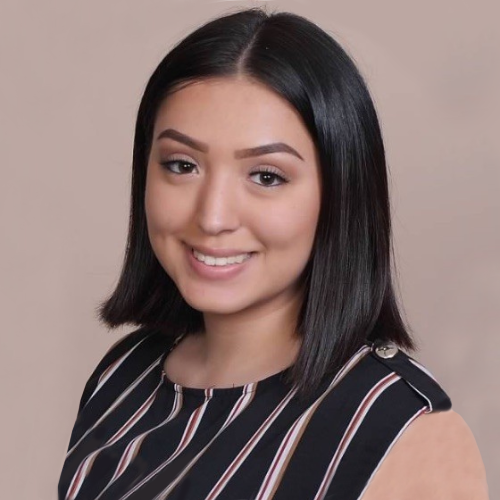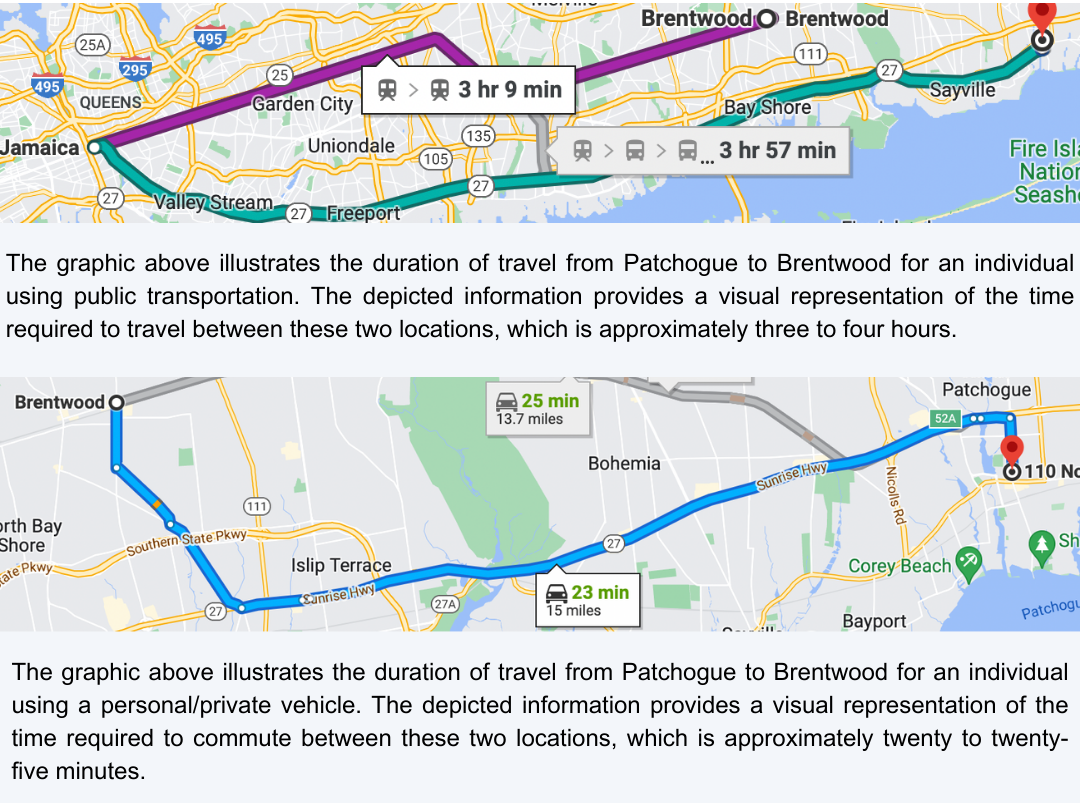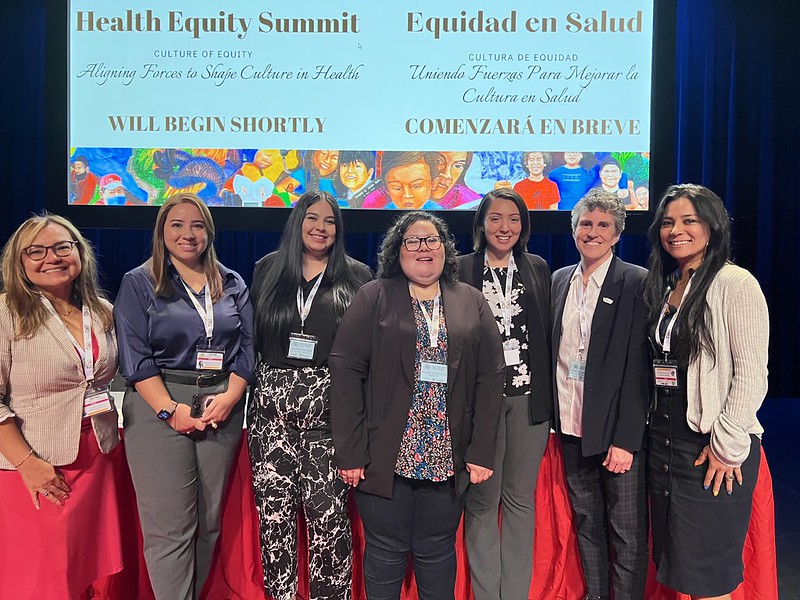 Merly Fuentes' passion for social justice drives her commitment to empowering marginalized communities. She has a B.S. in Business Management with a minor in Legal Studies, as well as an Associates in Applied Sciences in Paralegal Studies. Merly is the Health Equity Coordinator at SEPA Mujer, a nonprofit organization dedicated to serving and empowering immigrant women on Long Island, and previously served at SEPA Mujer as an Immigration Paralegal. She is also an Ambassador at Poshmark, a fashion marketplace which helps buyers and sellers connect and succeed. She has maintained an active and successful online store on Poshmark, leveraging social media to promote listings and attract new customers to increase sales.
Merly Fuentes' passion for social justice drives her commitment to empowering marginalized communities. She has a B.S. in Business Management with a minor in Legal Studies, as well as an Associates in Applied Sciences in Paralegal Studies. Merly is the Health Equity Coordinator at SEPA Mujer, a nonprofit organization dedicated to serving and empowering immigrant women on Long Island, and previously served at SEPA Mujer as an Immigration Paralegal. She is also an Ambassador at Poshmark, a fashion marketplace which helps buyers and sellers connect and succeed. She has maintained an active and successful online store on Poshmark, leveraging social media to promote listings and attract new customers to increase sales.
Merly Fuentes would like you to know...
The Importance of Cultural Humility in Healthcare
Cultural humility in healthcare is an essential approach that values and respects the cultural backgrounds, beliefs, and experiences of patients. It involves a commitment to self-reflection, recognizing power imbalances, and a willingness to learn from diverse cultural perspectives. By practicing cultural humility, healthcare providers can deliver patient-centered care through effective communication by actively listening, asking open-ended questions, and avoiding assumptions based on cultural stereotypes, thus building trust and enhancing patient-provider relationships. Cultural humility involves continuous education and understanding of the histories and practices within the ethnically diverse communities, ensuring that healthcare is respectful, responsive, and tailored to patient needs.
Long Island Transportation and Health Care Inequities
Transportation is one of the primary causes of healthcare inequities on Long Island. The geographical layout of the region, coupled with limited public transportation options, creates significant barriers to access timely and quality healthcare services for those in underserved communities. Many low-income residents relying on public transportation face long travel times, multiple transfers, and unreliable schedules when attempting to reach medical facilities. This can result in missed or delayed appointments, limited access to specialists or specialized care centers, and overall difficulties in maintaining regular healthcare visits. Furthermore, the cost of transportation, including gas, tolls, and parking fees, can pose an additional financial burden on individuals already facing socio economic challenges. Addressing transportation disparities and improving accessibility through initiatives such as expanded public transportation options, affordable rideshare services, or mobile healthcare units can help mitigate these healthcare inequities and ensure that all Long Island residents have equal access to the care they need.

Gynecological Care and Awareness of Trauma
Ethnically diverse victims of sexual assault or other forms of gynecological trauma face unique challenges and complexities in receiving gynecological care. The impact of such traumatic experiences commonly manifests as psychological, emotional, and physical barriers to seek and engage in necessary medical care. Cultural factors, social stigmas, and systemic biases may further exacerbate these challenges. For many ethnically diverse survivors, cultural norms and taboos surrounding discussions of sexuality, reproductive health, and trauma can contribute to a sense of shame, guilt, and silence, making it difficult to disclose their experiences or seek appropriate medical attention. Additionally, experiences of discrimination, racism, and marginalization within healthcare systems can erode trust and further hinder access to sensitive and compassionate gynecological care. It is crucial for healthcare providers to adopt culturally competent approaches, create safe spaces for survivors to share their experiences, and tailor care plans that prioritize the physical and emotional well-being of ethnically diverse survivors of gynecological trauma.
Finding Trusted Resources and Linkages to Health Care
Including faith-based leaders and grassroots organizations as trusted linkages is essential in supporting ethnically diverse communities' access to healthcare. These community leaders and organizations often possess deep-rooted connections, cultural knowledge, and trust within their respective communities. Faith-based leaders can play a crucial role in bridging the gap between healthcare providers and individuals by offering guidance, support, and spiritual counseling. Their presence can help alleviate fears, address cultural beliefs, and encourage community members to seek appropriate medical care. Grassroots organizations, on the other hand, are often embedded within the community and have a strong understanding of its unique needs. They can provide valuable resources, advocacy, and education on healthcare matters, acting as intermediaries between community members and healthcare institutions. By involving faith-based leaders and grassroots organizations as trusted linkages, healthcare providers can establish stronger connections with ethnically diverse communities, enhance cultural competency, and ensure that healthcare services align with the specific cultural, spiritual, and social contexts of the individuals they serve. This collaborative approach contributes to building a more inclusive and equitable healthcare system.
2023 Health Equity Summit

Merly organized the successful 2023 SEPA Mujer's Health Equity Summit held at SBU's Wang Center, bringing together organizations providing healthcare and/or health service, those based in communities, and those against violence; financial institutions; faith-based communities; and multi-service organizations serving minority, immigrant, and/or tribal communities across NY. The Summit aimed to identify barriers to health, share culturally-appropriate strategies, and enhance skills and knowledge about the culturally component of health issues around minority, immigrant, and/or indigenous communities.
4th Annual International Law Conference on the Status of Women
Merly Fuentes speaks on panel: "Women’s Empowerment through Safety and Security: Mitigating Risks Against Climate Change and Environmental Disaster" (see Merly on video at 1 hour 23 minutes) at the 4th Annual International Law Conference on the Status of Women, hosted by the NYC Bar Association.

